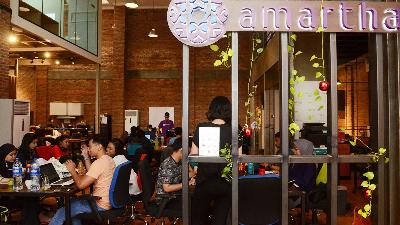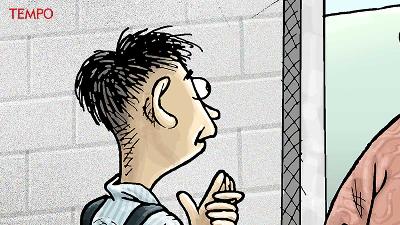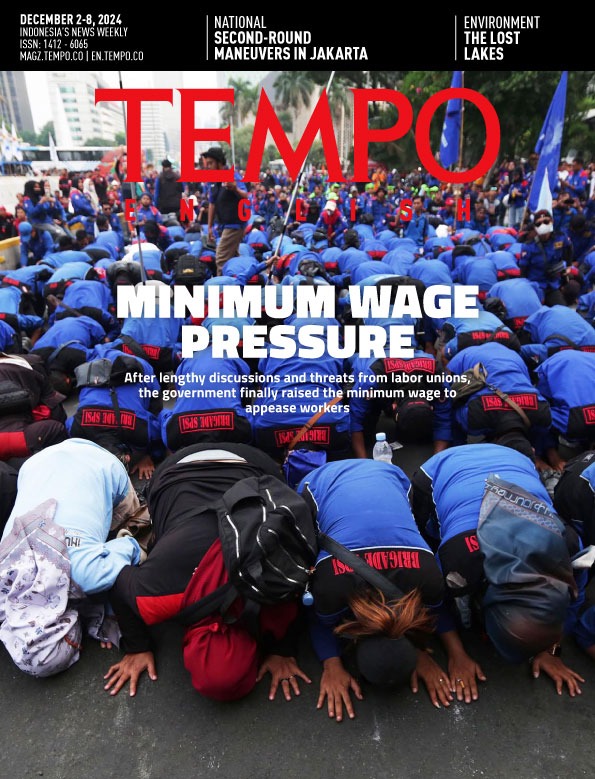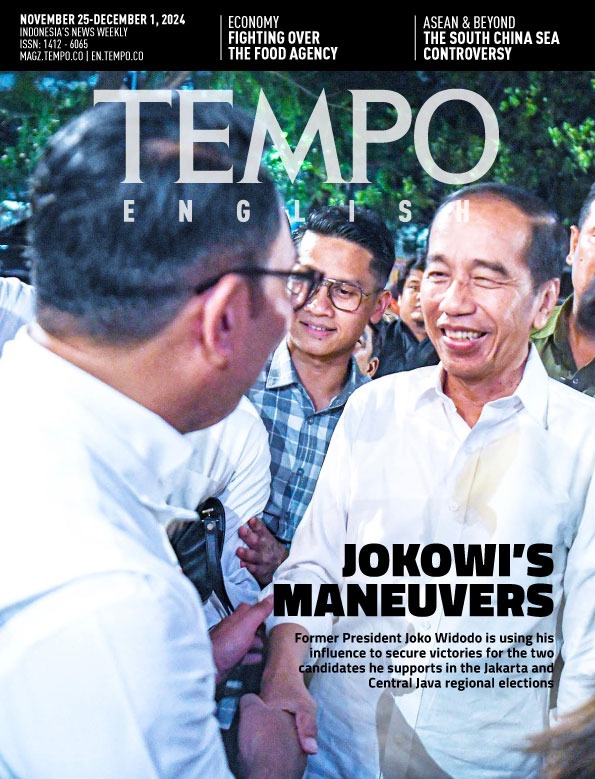The Supreme Court's Lack of Ethics
Monday, May 13, 2024
Alleged ethical violations by Supreme Court justices who were treated to a meal by an attorney underlines the sorry state of our judicial system. The Judicial Commission is weak.
arsip tempo : 173458115936.
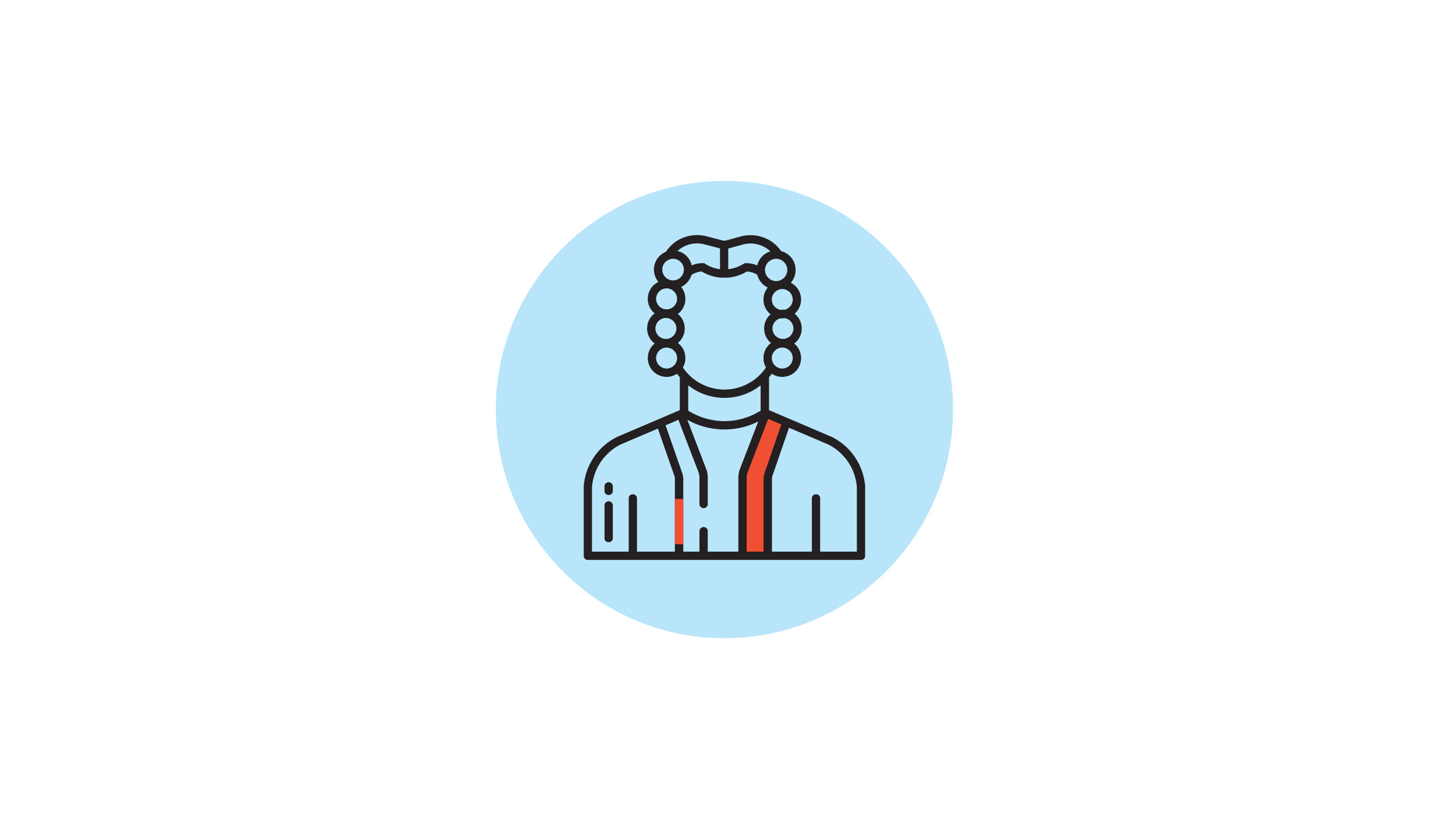
IT is difficult to uphold the authority of the Supreme Court if the leaders of this highest court in the land do not uphold ethical standards. Especially if a number of violations by Supreme Court judges are not always handled seriously.
A number of leading figures in the Supreme Court have recently been reported to the Judicial Commission for alleged violations of the code of ethics. These justices attended a dinner on the invitation of an attorney named Ahmad Riyadh in Surabaya, East Java.
Meetings between justices and lawyers, whether involved in cases or not, are clearly prone to conflicts of interest. If proved, this gathering adds to the list of wrongdoing that has harmed the reputation of the Supreme Court.
The Corruption Eradication Commission (KPK) previously detained the Supreme Court Secretary in a different case involving Nurhadi and Hasbi Hasan. Anti-graft investigators also arrested Supreme Court Justices Sudrajad Dimyati and Gazalba Saleh in relation to the buying of rulings. Ahmad Riyadh, the lawyer who paid for the meal for the Supreme Court officials, was subsequently mentioned in connection with a hearing related to money laundering by Gazalba because he handed over a S$18,000 bribe to the Supreme Court judge.
The damage to the Supreme Court stems from the weakening of the oversight and sanctions mechanism. Monitoring of Supreme Court justices has been carried out by the Supreme Court Supervisory Board, which simply carries out administrative functions. The Judicial Commission, an external body that it was initially expected to be able to monitor the conduct of judges, is powerless. The Supreme Court tends to ignore recommendations of sanctions from the Judicial Commission.
According to the Judicial Commission, for example, 85 crooked judges were recommended for sanctions for ethical violations in 2021. However, the Supreme Court only followed up on two suggestions for sanctions. Meanwhile, in 2019, of 130 recommendations, only 10 judges were punished.
The Judicial Commission, one of the institutions established after the Reformasi era, was designed to be weak since its establishment. Law No. 22/2004 on the Judicial Commission states that the responsibility of the institution is simply to investigate ethical violations and propose sanctions for any violations by judges to the Supreme Court and Constitutional Court. However, the authority of the Judicial Commission to monitor constitutional justices was removed by the Constitutional Court—another body formed after 1998.
The Constitutional Court removed the Judicial Commission’s authority to monitor constitutional justices in 2006. The Constitutional Court also revoked the authority of the Judicial Commission in the selection of first level judges in 2015. Most recently, constitutional judges stripped the Judicial Commission of its authority to have representatives as members of the Constitutional Court Ethics Council. Instead of strengthening our judicial system, the Constitutional Court has been responsible for weakening it.
The weakening of the Judicial Commission shows that the endeavor to uphold the supremacy of the law and the eradication of corruption has not yet succeeded. Institutions such as the Judicial Commission, the Attorney General’s Office Commission and the National Police Commission established to monitor the conduct of judges, prosecutors and police officers, have been unable to do much. The KPK was also weakened through revisions to the KPK Law in 2019.
Institutions that were products of the Reformasi era were established to strengthen the mechanism of the balance of powers between the courts and law enforcers. Without controls and monitoring by the bodies that have strong authority, our courts and law enforcement agencies will continue to be corrupt and act arbitrarily. Weak supervision means that judges continue to damage the authority of the judiciary.





